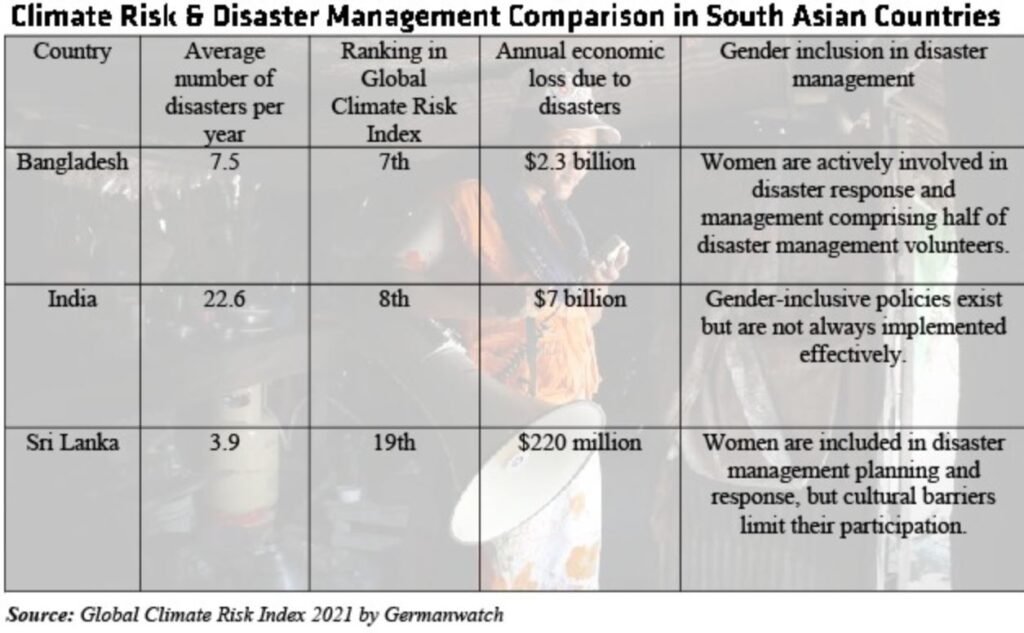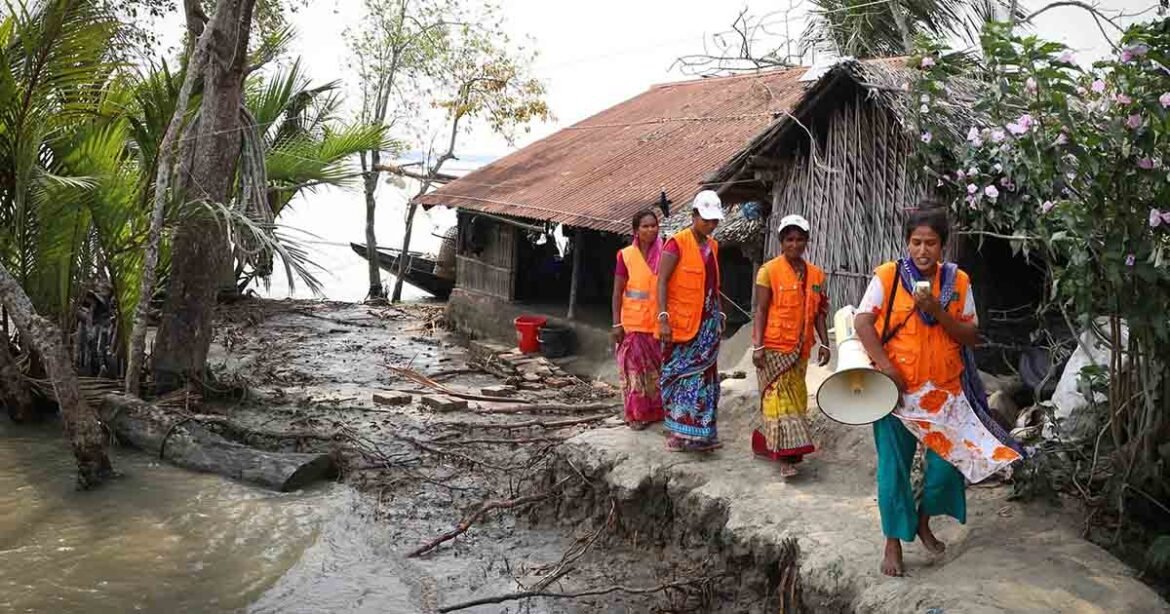Bangladesh has been leading the way in the fight against disasters, particularly against the impact of climate change. With a multi-layered early warning system in place, the country has seen a decrease in the death toll from extreme weather events, and this is largely thanks to the army of volunteers who work tirelessly to protect their communities. Notably, half of these volunteers are women who have been playing a critical role in addressing the gender disparities that impact who is most affected by disasters. Moreover, Bangladesh’s early warning system has become a model for other low-income countries, which are also struggling to develop their own early warning systems in the face of climate change.
Bangladesh’s Disaster-Prone Status
In the past decade, Bangladesh has experienced an average of 7.5 disasters per year, including floods, cyclones, and landslides, resulting in an annual economic loss of approximately 2% of the country’s GDP. The country’s geographical location on the Bay of Bengal puts it at high risk of natural disasters, exacerbating the impact of climate change.
You Can Also Read: WORLD POPULATION REACHES 8 BILLION: ARE WE SLEEPWALKING INTO CLIMATE CRISIS?
According to the Global Climate Risk Index, Bangladesh ranks sixth among the countries most affected by climate change. In June 2022, the country was hit by its worst flood in over a century, with more than 10 million people affected, causing an estimated economic loss of over $5 billion. Despite these challenges, Bangladesh’s disaster management system, including its multi-layered early warning system and network of volunteers, has enabled the country to decrease the death toll from extreme weather events. The country’s commitment to disaster management and preparedness provides an example for other low-income countries struggling to develop their own early warning systems in the face of climate change.
The start of Bangladesh’s world-leading system
The history of Bangladesh’s disaster management system can be traced back to 1970 when Cyclone Bhola resulted in an estimated death toll of half a million people in the Bay of Bengal. This prompted Bangladesh to invest heavily in weather forecasting technology, cyclone shelters, and training up a network of volunteers along the coast. Since then, the country has established a comprehensive network of weather stations, including coastal radars, ground-based stations, and balloon-borne instruments measuring air pressure and humidity, which enable Bangladesh to monitor developments in real-time.

The country’s success in lowering its death toll is due in part to its improved ability to monitor and track cyclones. For example, in 2019, Cyclone Fani hit Bangladesh’s coast, causing over $700 million in damages, but the death toll was only seven people. The country’s early warning system and disaster preparedness measures saved countless lives. Furthermore, women play a significant role in the disaster management system, with half of the volunteers being women. For example, during the 2022 floods, women volunteers played a vital role in rescuing and evacuating women and children from flood-affected areas. This contribution by women in Bangladesh’s disaster management system highlights the importance of gender inclusion in disaster management efforts.
A comprehensive early warning system
Bangladesh’s early warning system includes a variety of communication methods, including TV and radio broadcasts, push messages via mobile phone networks, targeted SMS notifications, and a helpline that people can dial to listen to pre-recorded voice messages. However, the key to reaching as many people as possible lies in the country’s vast network of volunteers. The government’s ministry of disaster management and relief (MoDMR) oversees the cyclone preparedness programme (CPP), which has over 76,000 volunteers in villages along the coast. The CPP has extended its approach to schoolchildren, initiating the ‘Prostoot’ or “learning through playing” programme in some secondary schools, where they learn about disaster management, basic first aid, and form disaster management teams. The goal is to create a “disaster-ready generation.” Women in Bangladesh’s CPP play a significant role in disaster management, and half of the program’s volunteers are women. Women’s involvement has been critical in addressing the gender disparities that impact who is most affected by disasters. For instance, women volunteers have been involved in raising awareness of disaster preparedness in their communities, including during emergencies. In addition, the CPP provides training and support to women volunteers to better support women in their communities. The program has made significant progress in reducing gender disparities in disaster management, with women now comprising 40% of search and rescue teams during emergencies.
Women lead disaster management
With half of its disaster management volunteers being women, Bangladesh’s approach to disaster management is unique and effective. Women play a critical role in addressing the gender disparities that impact who is most affected by disasters, as evidenced by the fact that women-led household experience 50% fewer deaths and injuries during disasters compared to male-led households. This is significant as women have historically been disproportionately affected by disasters, facing greater risks of displacement, injury, and even death. To address this gender disparity, the government’s Comprehensive Disaster Management Programme (CPP) has created opportunities for women to play a critical role in disaster management. Women volunteers receive training and support to better support women in their communities during emergencies. They are also involved in raising awareness about disaster preparedness and response, particularly among other women in their communities. The active involvement of women in Bangladesh’s disaster management system has not only helped to reduce the death toll from natural disasters but also provides a powerful example for other countries facing similar challenges.

In conclusion, Bangladesh’s multi-layered early warning system and network of volunteers have played a crucial role in reducing the number of fatalities caused by extreme weather events, despite being one of the world’s most vulnerable countries to climate change. However, one of the key factors behind Bangladesh’s success has been the active participation of women in disaster management and response. Women in Bangladesh, particularly those from marginalized communities, have been instrumental in disseminating early warning messages, conducting search and rescue operations, and providing relief and rehabilitation support to affected communities. This has helped to address the gender disparities that exist in disaster-prone regions, where women and girls are often more vulnerable due to social, economic, and cultural factors. Bangladesh’s success has made it a model for other low-income countries struggling to develop their own early warning systems in the face of climate change, and the country’s ongoing commitment to disaster preparedness and management provides a shining example of how women’s involvement can strengthen resilience and save lives in times of crisis.


